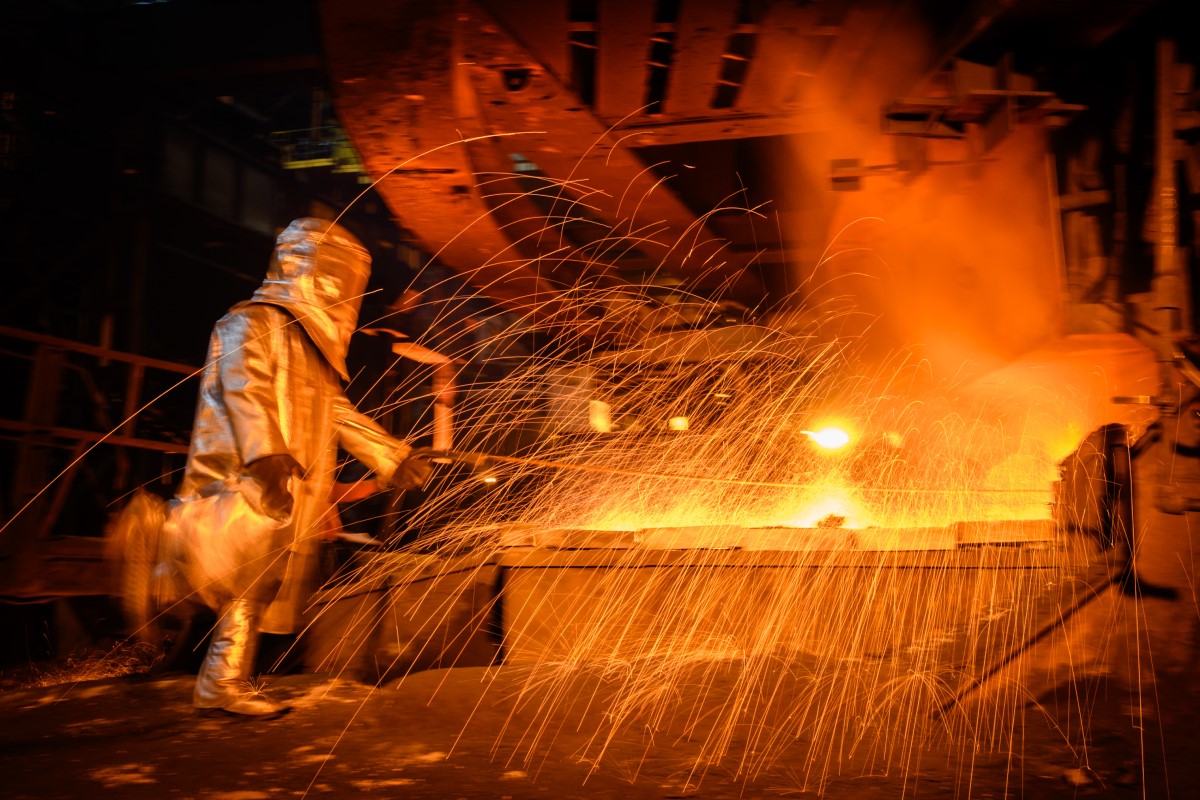Southeast Asia’s biggest emerging market Indonesia has a trump card up its sleeve for economic development – its large reserves of nickel. However, the country wants higher control over the commodity and has placed an export ban on the ore, depriving the world of Indonesia nickel.
Indonesia wants to develop the downstream sectors of nickel production within the country and attract foreign investment in lithium battery and EV manufacturing. Indonesia’s automobile industry is very significant and contributes over 10% to the country’s GDP, as per local publication Tempo. The country is also the second-largest vehicle producer in Southeast Asia, which makes it even more opportune for the country to control the nickel supply chain for higher profits.
The value of Indonesia nickel
Nickel is a key mineral in the production of steel and about 70% of the nickel demand comes from this industry, says Center for Strategic & International Studies (CSIS). Demand for nickel has been rising as its potential use as a replacement for cobalt in electric vehicle batteries. Cobalt is expensive and has human rights issues surrounding it due to its concentration in the Democratic Republic of Congo.
Indonesia has 30% of the world’s nickel reserves spread across various islands, and four state-owned mining enterprises have now formed a consortium to capitalize on the government’s focus on developing downstream activities, said the country’s Ministry of Investment.
Indonesia nickel ban was announced in 2019 which pushed prices higher to $18,539 per tonne on September 12. Covid-19 had caused some easing of the prices as demand slowed. Nickel prices have rallied almost 60% in 2022, and Nickel futures hit $100,000 in early March after Russia started the war in Ukraine, as per data from Trading Economics.
The economic value addition of the nickel ban
Indonesia had previously banned the export of mineral ores back in 2014, and then again in 2017. In 2014, the country saw investments in the mining industry fall due to the ban, but in 2021 there has been an increase in investment, as per data from the Ministry of Investment. Exports of stainless-steel products made by the downstream smelters have also picked up pace since the ban.
However, the question remains whether the benefits of the nickel ban are higher than the lost value of nickel exports. The Indonesian government has given smelters tax breaks, funding stimulus and other benefits. Moreover, the export ban has forced miners to sell nickel ore domestically at far lower prices compared to the international market. A ban on nickel export means a loss of revenue losses from corporate taxes and export duties.
Additionally, the government said that investments in the smelting industry will increase the employment rate, but downsizing in the mining sector is possible due to the nickel export ban, as per The Jakarta Post.
“We believe Indonesia’s aim of becoming Asia’s electric vehicle (EV) hub will have limited success in the coming years,” Fitch Solutions said in a report.
The export ban caused Indonesia to miss out on the high international prices caused by the war between Russia and Ukraine, both major nickel suppliers. There is also the case of local prices and grading systems, which would further put pressure on the mining industry.
Indonesia’s ban on ore exports has raised eyebrows globally, with Europe dragging the nation in front of the WTO. The arbitrary ban erodes investor confidence in the country’s policymaking environment. “We believe Indonesia’s reputation of policy uncertainty and increasingly rigid and unfriendly policies for foreign businesses will work to curb investor appetite,” said Fitch Solutions.
While concerns remain, the increased investment in the Indonesia nickel refining industry, along with the cost advantages and availability of the ore, Indonesia is likely to be at the centre of refined nickel supply for EV batteries.
“However, the vast majority of new capacity development over the past decade has been in Indonesia and has had significant environmental side effects,” writes consultancy firm Wood Mackenzie. “Recent pledges by Indonesia to reverse deforestation and cease coal-fired power station development would make repeating these growth rates extremely challenging.”
Who is investing in Indonesia nickel?
US carmaker Tesla has announced plans to invest in Indonesia, and recently Tesla supplier CATL said it is investing in a $6 bn EV battery chain project in Indonesia. A regulatory filing by the Chinese company revealed that it has a majority stake in five of six battery manufacturing and recycling projects in Indonesia.
Japan’s LG Energy Solution, LX International, LG Chem, and a few other firms in a consortium recently signed a $9 bn contract with PT Aneka Tambang (Antam) and Indonesia Battery to develop an end-to-end value chain for EV battery supply. This is LG Energy Solution’s second battery project in the country, with the first being an investment of $1.1 bn in a joint venture with South Korea’s Hyundai Motor.
Indonesia’s Marowali regency Onhas attracted billions of dollars of investment from Chinese firms, including battery material producers such as Zhejiang Huayou Cobalt, Eve Energy and Guangdong Brunp Recycling Technology. The biggest stake in the Indonesia Morowali Industrial Park is held by Chinese stainless-steel giant Tsingshan Holding Group.
China-backed Nickel projects dominate the space, but even Chinese investors are having second thoughts about whether Indonesia is a good place to invest in battery production due to poor government financial support, a potentially battery-damaging tropical climate and lack of related insurance, reports Caixin Global.


 Australia
Australia China
China India
India Indonesia
Indonesia Japan
Japan Malaysia
Malaysia Philippines
Philippines Singapore
Singapore South Korea
South Korea Taiwan
Taiwan Thailand
Thailand Vietnam
Vietnam




